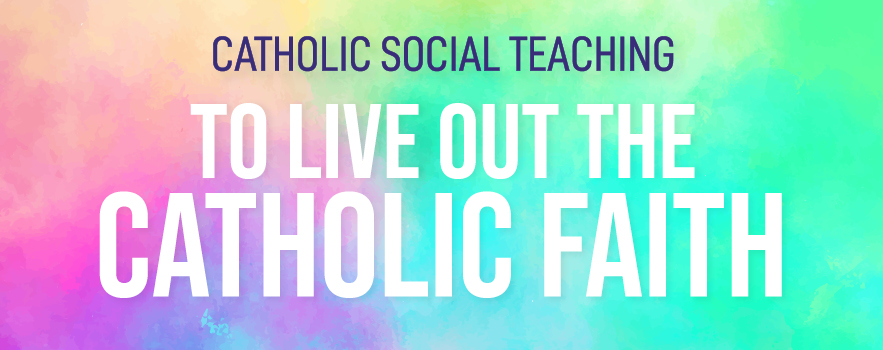No products in the cart.

Last week, on Divine Mercy Sunday, we read in the First Reading at Mass that “the whole group of those who believed were of one heart and soul, and no one claimed private ownership of any possessions, but everything they owned was held in common” (Acts 4:32).
A keen listener might wonder whether the early Church community was a radically socialist society, and whether such a system should be preferred. But here, context is necessary. Early Christians lived in small communities that had high degree of independence from each other, making this way of organising feasible. As the number of Christians grew, eventually becoming the majority in the Roman Empire, common ownership of property was no longer a sustainable way to organise themselves.
A thoughtful Christian might ask whether this beautiful ideal described in the Acts of Apostles is really impossible to realise today. Catholic Social Teaching, we think, has an interesting answer to this question.
In previous issues, we discussed the Principle of the Common Good. To recap, acting for the common good is to strive for a society that makes it as conducive as possible for every person to reach fullness of life, both as an individual and as a member of a community.
It is possible to see in this Principle a continuation of the early Church’s model of Christian living. Catholic Social Teaching, after all, applies the values of the Gospel in the modern era. While early Christian communities found that sharing material property in common was the best way to ensure that every member of the community could have their needs fulfilled, the Church today invites the faithful to strive for both material and spiritual fulfilment for every person, regardless of their religious tradition.
This more recent vision of communal living is certainly more ambitious. Yet, there are small ways in which we can each contribute to such a vision. One way to do so is to participate in the vaccination drive for Covid-19, especially since the Church has stated its position on the morality of vaccination.
Why does this matter? As more people get vaccinated, it becomes less likely for Covid-19 to spread, and makes Singapore becomes a safer place for everyone. In such an environment, it will become easier for every person to go about their daily activities. More social activities become possible, and this is especially important for those struggling with mental health conditions. Social services for those in need will also be able to operate at higher capacity; there will be less restrictions on activities that various associations can engage in.
In other words, people have a better chance to develop themselves and have a fulfilling life in a safer society. Of course, important precautions must be taken, such as following the advice of healthcare professionals on who should not take the vaccine because of risky allergies or conditions.
In summary, common ownership of property might not be feasible today as it was in the Acts of the Apostles. But that has not stopped the Church from articulating a different vision based on the same ideal, which is a society where every person, regardless of their religious traditions or beliefs can arrive at their fulfilment, for the common good of all.
First published in Catholic News. Reprinted with permission.
